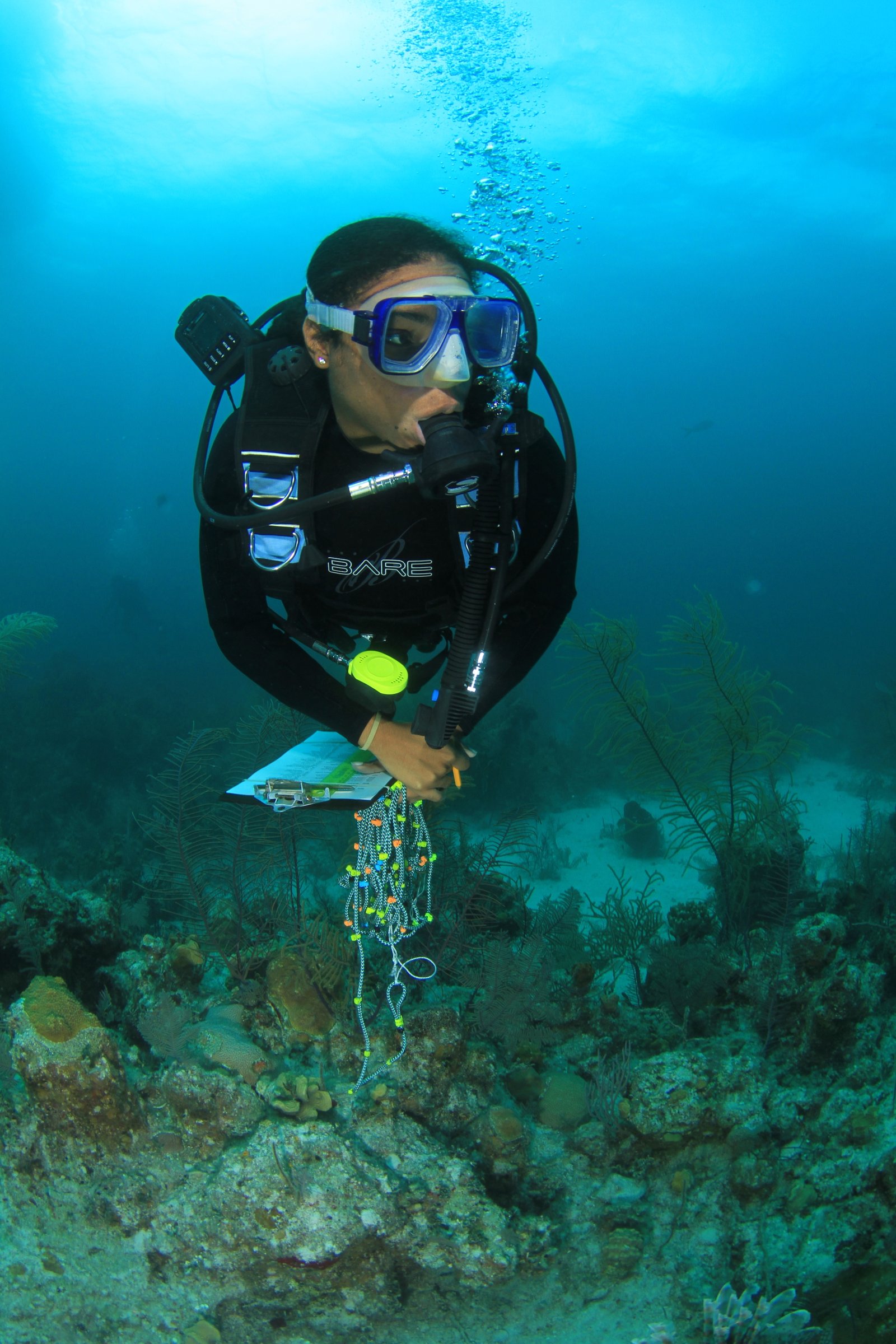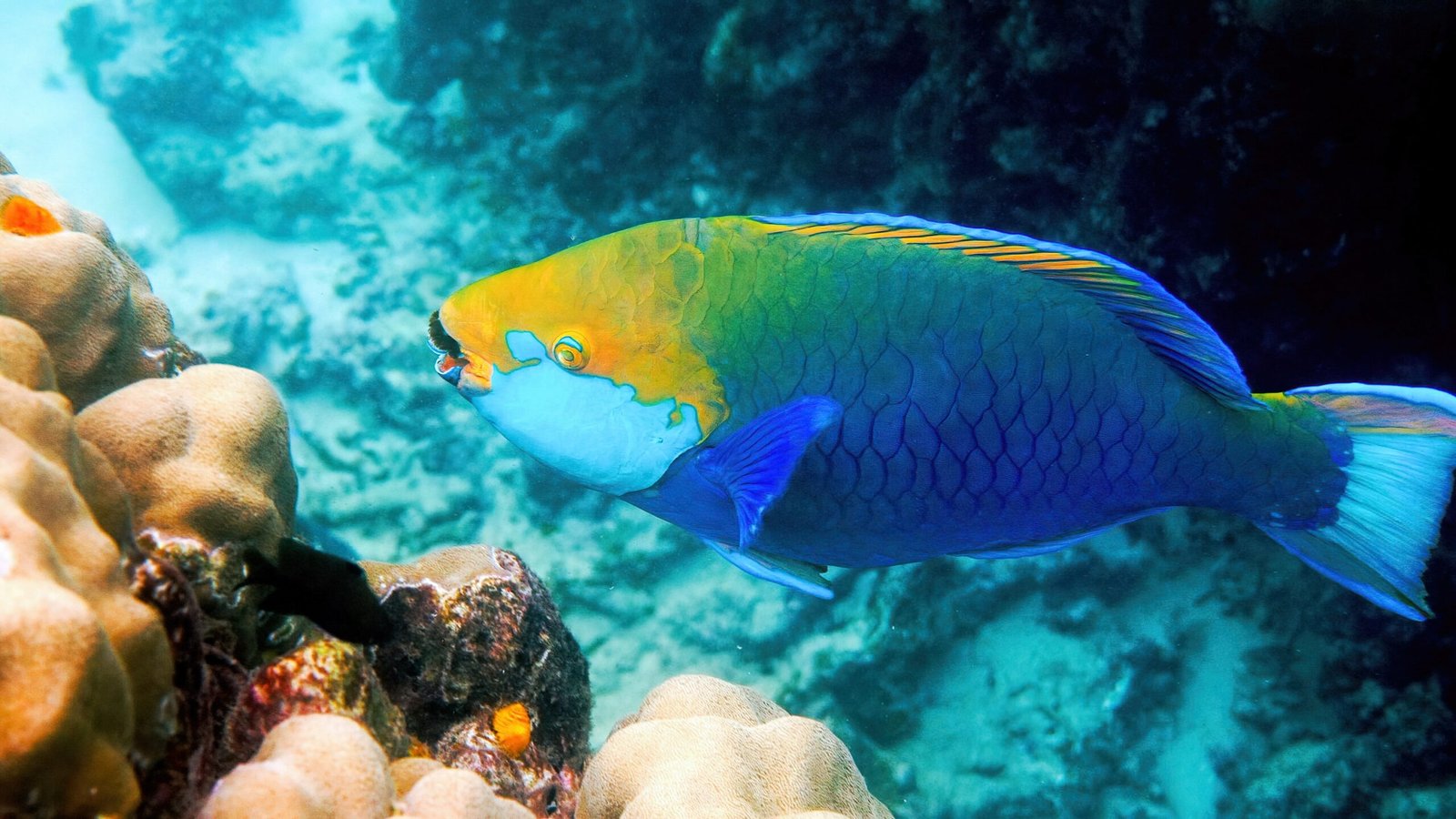NASSAU, BAHAMAS — New research recommends banning all commercial and recreational parrotfishing and establishing complete no-take policies within all Marine Protected Areas (MPAs) to prevent further declines in the species largely responsible for preventing algae from overtaking coral reefs in The Bahamas.
The new study published in the journal, Diversity is authored by Dr Krista Sherman, Maya Gomez, Thomas Kemenes, and Dr Craig Dahlgren of the Perry Institute for Marine Science (PIMS).

Dubbed “nature’s lawnmowers”, parrotfish are important for maintaining resilient coral reefs that protect coastlines, provide food, and support livelihoods. However, in The Bahamas, parrotfish are increasingly being targeted and to date, no fishery regulations have been implemented.
Using fish data, collected over nine years of reef surveys, marine scientists examined the status of parrotfish across different reefs around New Providence and Rose Island. Their goal was to determine whether parrotfish populations have changed over time and if these changes are related to increased fishing pressure.
PIMS scientists found “a 59 percent decrease in the average density of parrotfish overall, with significant declines occurring in three parrotfish species: Striped, Redband, and Greenblotch.”
“Notably, we also found significant changes in parrotfish size composition over time, with a shift to smaller size fish and the total loss of large adults, greater than 40 cm (15 inches) across all 26 reef sites. This finding has important implications for not only the survival of parrotfish populations but also their ability to maintain key ecosystem processes on Bahamian coral reefs,” said Dr Sherman, lead author, and PIMS’ senior scientist.
Researchers fear that significant declines in parrotfish populations on top of threats such as coral bleaching, oil spills, hurricanes, and stony coral tissue loss disease, may further stress local coral reefs.
In fact, data have shown macroalgal coverage on reefs around New Providence is growing. Macroalgae, or large aquatic photosynthetic plants, covered anywhere from 18 to 38 percent of coral reefs between 2011—2014. By 2019, that number had jumped to 42 percent.
“Parrotfish populations in The Bahamas have typically been among the most abundant in the Caribbean, but these latest results demonstrate around 58 percent of the reefs surveyed are now lower than regional values, with significant declines occurring in a few parrotfish species,” said Dr Sherman.
“To make matters worse, large parrotfish are known to be more effective at grazing, that is, removing macroalgae than smaller fish. So, the loss of these large herbivores has implications for the condition or health of coral reefs habitats.”
In addition to coral restoration efforts, researchers say responsible fishing practices are needed to maintain a healthy distribution of parrotfish if the nation wants to protect its coral reefs and the livelihoods of fishers that depend on them.
Other countries in the Caribbean, including Belize, Bonaire, and Turks & Caicos, have already introduced fishery regulations – size limits, bans or catch limits – to conserve their parrotfish populations.
“Our results highlight the importance of monitoring and emphasize the urgency of implementing science-based strategies to sustainably manage the fishery and protect these ecologically essential herbivores, which are vital components of coral reefs,” Dr Sherman noted.
PIMS researchers say the study provides a benchmark to monitor potential changes to parrotfish populations and could help measure the effectiveness of any new fishery regulations.






